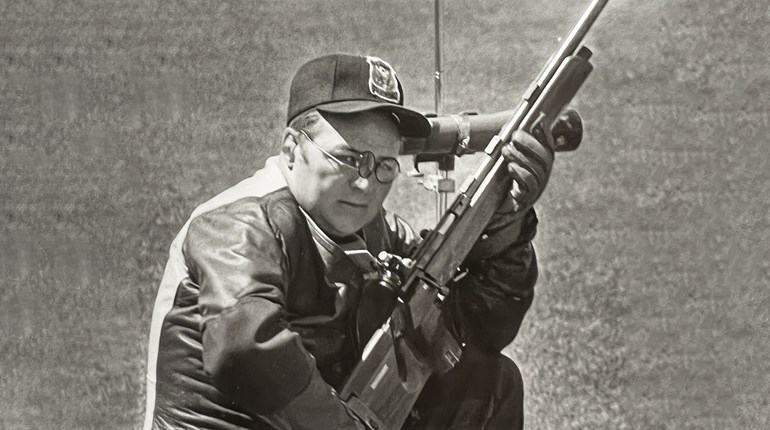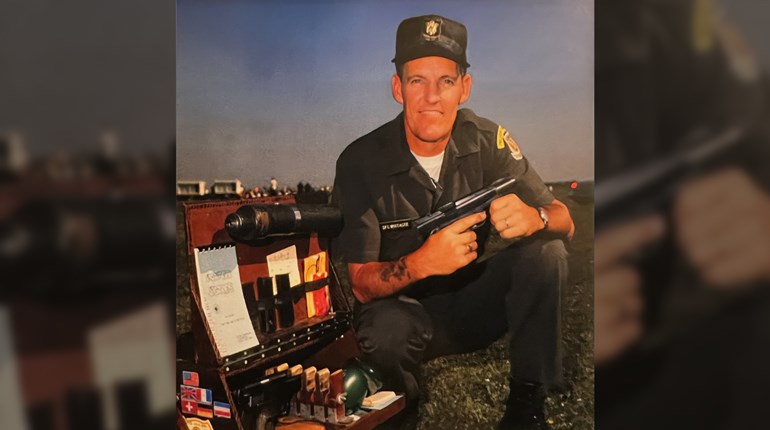
He didn’t look like a Wild West desperado, and didn’t act much like one either. He was afraid of horses, so committed all 28 of his stagecoach robberies on foot, singlehanded. And he robbed only Wells Fargo & Company stages. Why? Well, that’s getting a little ahead of the story.
Charles Earl Bolles (sometimes spelled Bowles or Boles) was born in Norfolk, England, and brought to America as a young child. Later in life he became a gold miner, walking all the way from his home in upstate New York to Montana, sometimes covering 40 miles per day. He had staked and was working a promising gold claim in that state when two men approached him offering to buy his claim. Bolles refused, so the two men bought the land above his and cut off the water running through Bowels’ property. Without running water Bowels could no longer pan for gold, so his claim became essentially worthless.
The two men were affiliated with Wells Fargo, which had been buying substantial land surrounding mining towns. Infuriated, Bolles swore revenge, and that’s when he began robbing only Wells Fargo stages—he was determined to get his gold one way or the other.
Wells Fargo & Company had its home office in San Francisco, California, so that’s where Bolles moved, beginning his life of crime on July 26, 1875, at the summit of Funk Hill about 100 miles from the city. A Wells Fargo stage driven by John Shine had just reached the top of the hill when Bolles stepped out from behind a large rock, dressed in a long white linen coat known as a “duster,” wearing a bowler hat, and with rags tied over his shoes to obscure his footprints.
When the stagecoach slowed to a stop, Bowels shouted loudly to the rest of his gang, “If he dares shoot give him a solid volley, boys!”
The stage driver looked around to see no fewer than six rifles pointing at him from behind surrounding rocks, then quickly threw down the strongbox as ordered. It contained $200, about $4,000 in today’s money. Bolles then sent the stage on its way, never bothering its frightened passengers or demanding any of their possessions.
The driver stopped the stagecoach at the bottom of the hill, walking back to pick up the empty strongbox. The robber was gone, but curiously his “gang” was yet in place, still aiming their rifles. Moving closer, the driver discovered that Bolles had cleverly placed straight, dark-colored sticks atop rocks to look like rifle barrels.
With his ill-gotten gains Bolles began living a life of luxury in San Francisco, wearing the finest clothes and eating at the best restaurants. Calling himself Charles Bolton, he claimed to be a mining engineer, a business that required him to make frequent business trips—trips that just happened to coincide with Wells Fargo stagecoach robberies.
Bowels would wait months between robberies, and even began leaving short poems behind at the scene of the crime to taunt his pursuers. One read:
I’ve labored long and hard for bread,
For honor and for riches
But on my corns too long you’ve tread,
You fine-haired sons-of-bitches
For some reason he signed the poem, Black Bart the P o 8, (likely meaning poet) and so the legend of Black Bart was born.
Black Bart became known as the “Gentleman Bandit” for his polite conduct during robberies. Wells Fargo even issued a statement to its stagecoach passengers, assuring them that, “He has never manifested any viciousness and there is reason to believe he is averse to taking human life. He is polite to all passengers, and especially to ladies. He comes and goes from the scene of the robbery on foot; seems to be a thorough mountaineer and a good walker. It is most probable he is considered entirely respectable wherever he may reside.”
Wells Fargo’s chief detective, James Hume, pursued Bolles for eight years before hiring Harry Morse—the “Bloodhound of the West”—to help catch him. The beginning of the end for Bolles came in November 1883, at the same exact spot where he had started his life of crime, atop Funk Hill.
The stagecoach had just topped the hill, moving slowly, the horses winded, when Bowels stepped out from behind a rock. Again he was wearing his signature duster, bowler and rags tied over his shoes; but this time he masked his face with a flour sack pulled over his head, holes cut out for his eyes and mouth. And he was holding a double-barreled, 12-gauge shotgun. It was unloaded, but of course the stage driver didn’t know that.
It probably seemed like just another robbery for Bolles, but what he did not know was that the stage driver, Reason McConnell, had a passenger with him that day: 19-year-old Jimmy Rolleri. McConnell had let the young man off the stage at the bottom of the hill to do a little hunting with a rifle. After Bolles allowed the stage to go on, McConnell ran and found Jimmy, telling him the stage had just been robbed.
The two of them sprinted back to the scene, just in time to see Black Bart still struggling with the strongbox. McConnell grabbed the young man’s rifle and fired two shots at Bolles, missing both times. Rolleri then tried his luck, his final shot grazing Bowels across the knuckles of one hand as he stumbled into the brush and disappeared.
James Hume and Harry Morse hightailed it to the scene of the crime as quickly as their horses could carry them. Finding and searching Bowles’ nearby camp they discovered several interesting items, the most significant being a bloody handkerchief with the laundry mark F.X.0.7. The pair reasoned that only well-to-do people had their laundry done professionally, and that such laundries were located only in big cities. And since San Francisco was the closest big city, they focused their search there.
The city had some 90 laundries operating at the time, and it took more than a week of sleuthing, but the detectives finally identified their man. The owner of the California Laundry on Stevenson Street—only a few blocks from the Wells Fargo office—said the laundry mark belonged to one of his better customers, a Mr. Charles E. Bolton, a mining engineer who lived at the Webb House, a hotel on Second Street.
The detectives interviewed the hotel’s landlady who described Bolton as “…an ideal tenant. So quiet, so respectful and punctual with his room rent.” They then assigned several of their assistant officers to stake out the hotel. What the officers eventually observed was the well-dressed Bolton emerging from his rooms, appearing to have a bandaged hand.
That was enough for Hume and Morse. They made the arrest, ending the career of Black Bart, the Gentleman Bandit. During his trial, Bowles pleaded guilty to only one robbery, his last. Found guilty, he was sentenced to six years in California’s San Quentin Prison, but was released for good behavior after serving just over four.
It’s been estimated that Charles Bowels, aka Charles Bolton, stole between $20,000 and $100,000 from Wells Fargo stages between 1875 and 1883, or about three million dollars in today’s money. And the only money he returned was what he had quickly hidden in a hollow log following the last robbery.
It’s not known for sure where or when Charles Earl Bolles—Black Bart: The Gentleman Bandit—died. Upon walking out of the Palace Hotel in Visalia, California, one day he was never heard from again, simply fading from the pages of Wild West history.






































